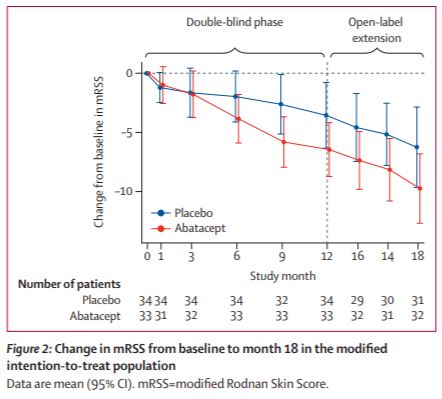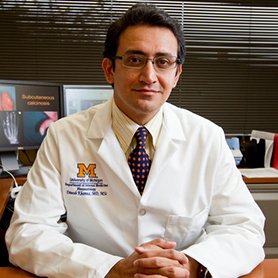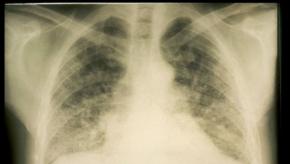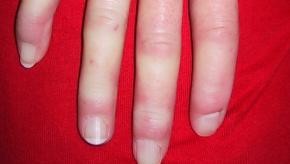All News
RheumNow Podcast – Good Time Charlie…. (10.16.20)
Dr. Jack Cush sings the news and journal reports from the past week on RheumNow.com.
Read ArticleSlow Lung Decline Typical in Systemic Sclerosis
The interstitial lung disease that develops in a subset of patients with systemic sclerosis tends to be heterogeneous, with the majority of patients experiencing a slow pattern of decline in lung function, analysis of outcomes in the European Scleroderma Trials and Research (EUSTAR) database foun
Read ArticleNovel Biologic Promising in Mid-Stage Scleroderma Trial
The anti-interleukin agent romilkimab showed significant benefits on skin fibrosis among patients with systemic sclerosis in a phase II trial, researchers reported.
Read ArticleRheumNow Podcast – Cardiovascular Risk in Psoriatic Disease (9.25.20)
Dr. Jack Cush reviews the news and Journal articles from the past week on RheumNow.com.
Read ArticleRomilkimab Effective in Early Diffuse Systemic Sclerosis
A phase II study of patients with early diffuse systemic sclerosis (SSc) has demonstrated improvement in SSc skin outcomes by targeting T cells and fibrosis with the bispecific monoclonal antibody romilkimab (RMK).
Read ArticleIs Mortality Improving in Systemic Sclerosis?
Systemic sclerosis (SSc) is a progressive autoimmune disorder that causes premature death, usually from lung, GI, or renal disease. While treatment efforts have been frustrating advances in care may have altered the risk of death according to population data showing that while SSc mortality increased from 1968 through 2000, it has declined since 2001.
Read ArticleRheumNow Podcast - Top 13 Rheumatology Centers (7-31-20)
Dr. Jack Cush reviews the news and TOP 13 list of Best Rheumatology Hospitals.
Read ArticleRheumNow Podcast – LTF – Listen to Fauci (7.17.20)
Dr. Jack Cush reviews the news, tweets and journal articles from the past week on RheumNow. Let's dig into this week's 14 highlights.
Virtual EULAR 2020 Round Up
In this week's podcast, Drs. Artie Kavanaugh and Jack Cush present highlights from the virtual EULAR2020 meeting held June 3-6, 2020. Featured reports include the SELECT-CHOICE study, the EXCEED trial, Avacopan in AAV, BeST mortality outcomes, BLISS-LN study, biosimilars and tofa in systemic sclerosis.
Read ArticleDay 3 - Top 5 from EULAR 2020
These were my top abstracts from Thursday, 4th of June at EULAR 2020:
Read ArticleDay 2 – Top 5 from EULAR 2020
These were my top abstracts from Thursday, 4th of June at EULAR 2020.
Read ArticleFirst Look at COVID-19 Global Rheumatology Alliance Registry
Gianfresco et al have published the first peer-reviewed analysis of COVID-19 infected, rheumatic disease patients entered into the Rheumatology Global Alliance registry; showing that a) rheumatic disease patient can be infected with COVID-19, b) that DMARD and biologic use has no apparent effect on outcomes and c) steroid increase and TNF inhibitor decrease the odds of hospitalization.
Read ArticleSystemic Sclerosis Future Therapies and Outcome Measures
Nagaraja, Khanna and colleagues have published an overview of current and future therapies in patients with systemic sclerosis (SSc) and have reviewed the potential outcome measures for this difficult autoimmune disorder.
Read Article
Links:

Dr. Dinesh Khanna sclerodermaUM ( View Tweet)

Dr. John Cush RheumNow ( View Tweet)

Links:
Dr. John Cush RheumNow ( View Tweet)

Dr. John Cush RheumNow ( View Tweet)

Links:
Dr. John Cush RheumNow ( View Tweet)

Dr. John Cush RheumNow ( View Tweet)










